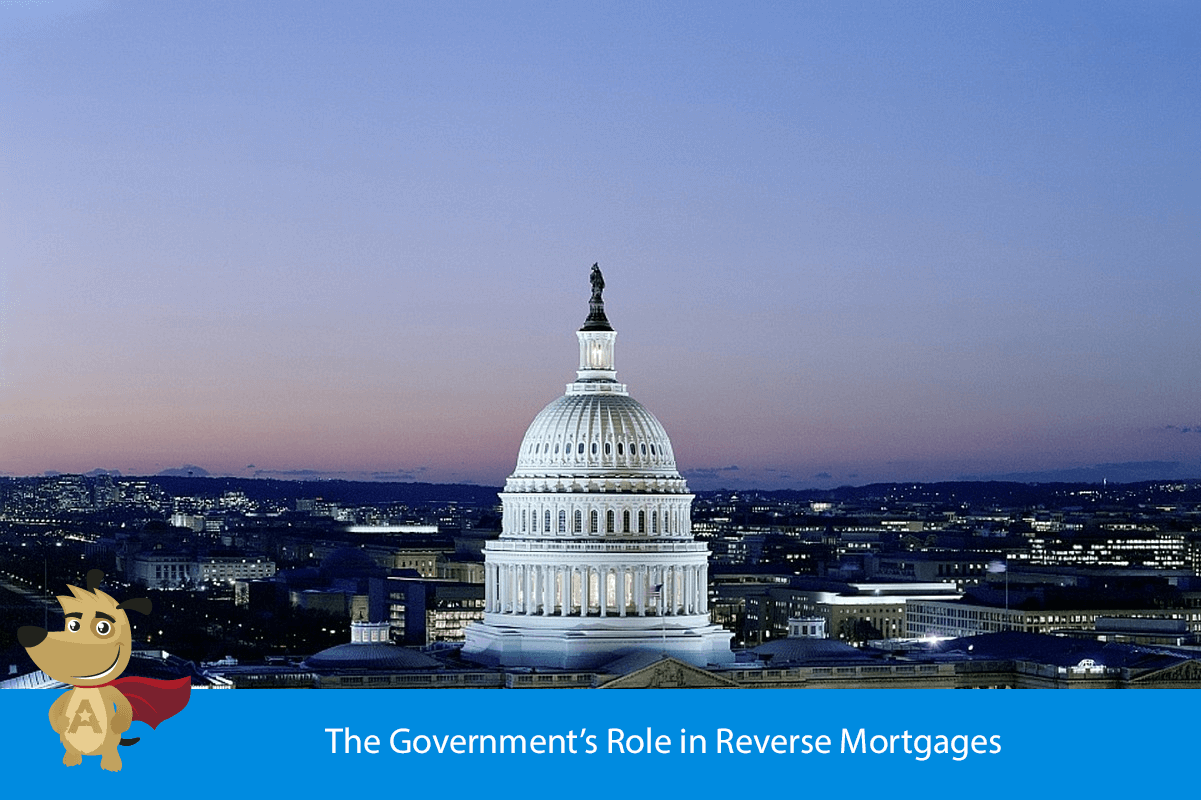
America’s #1 Rated Reverse Lender*
What is the Government’s Role in Reverse Mortgages?
 |
Michael G. Branson, CEO of All Reverse Mortgage, Inc., and moderator of ARLO™, has 45 years of experience in the mortgage banking industry. He has devoted the past 20 years to reverse mortgages exclusively. (License: NMLS# 14040) |
 |
All Reverse Mortgage's editing process includes rigorous fact-checking led by industry experts to ensure all content is accurate and current. This article has been reviewed, edited, and fact-checked by Cliff Auerswald, President and co-creator of ARLO™. (License: NMLS# 14041) |
An estimated 99% of of reverse mortgages offered today are insured by the Federal Housing Administration (FHA), according to the agency. While the government does insure these reverse mortgage products, it does not offer the loans directly to consumers.
Since they are insured by the federal government, the vast majority of reverse mortgages come with additional benefits that you won’t find from any private reverse mortgage product.
FHA Protections
FHA provides borrowers with the comfort of knowing that they will never owe more than the home is worth. In other words, if you obtain a reverse mortgage and later decide to move, you’re protected even if your home has lost a significant amount of value. This is the FHA’s “non-recourse” policy.
Borrowers are also protected if the lender that is servicing the loan goes out of business. In the unlikely event that happens, FHA guarantees that you will receive any remaining payments or money available from the reverse mortgage, as agreed upon under the terms of your loan.
Before borrowers take out a reverse mortgage, they should understand that they pay for these protections. All FHA-insured reverse mortgage products include an upfront mortgage insurance premium as well as one that is charged annually.
Depending on the product you choose, these costs vary.
Read more about mortgage insurance premiums.
Government Regulation

While the government may not offer Home Equity Conversion Mortgage (HECM) reverse mortgages directly, borrowers can rest assured that the government is involved in the origination of the loans.
This is done through a government agency called the Department of Housing and Urban Development (HUD). The agency manages the product and requirements of the program, essentially holding authority over its rules.
While HUD manages a wide variety of issues related to its reverse mortgage program, the counseling requirement is one of the most important.
Prior to obtaining a HECM loan, all borrowers are required to receive reverse mortgage counseling from a HUD-approved agency. HUD is responsible for developing guidelines for the counselors on what they need to discuss and explain to borrowers during the meeting.
The agency also requires that the people who provide counseling are trained to a certain standard and have passed a test to ensure they understand the details of the program.
In addition to the reverse mortgage counseling, HUD is responsible for oversight of the lenders that offer reverse mortgages to consumers. If a lender fails follow the rules put in place by HUD, that lender will not be allowed to offer the loans.
The agency will also take actions against reverse mortgage lenders who violate the guidelines of the program. While this doesn’t happen very often, the agency has made it clear that it won’t allow lenders to take advantage of senior citizens.
Ginnie Mae
The government also plays a role in the investor market for reverse mortgages through the Government National Mortgage Association (GNMA).
As a government agency, GNMA, or “Ginnie Mae,” does not buy or sell loans or issue mortgage-backed securities (MBS). However, it does guarantee that investors who buy the bonds will receive principal and interest payments. Ginnie Mae only backs MBS that are made up of loans insured by government agencies like FHA and or the Department of Veterans Affairs (Reverse Mortgage for Veterans).
By offering this guarantee to investors, the loans are less expensive for consumers since the end buyer knows the government will step in and make sure they’re paid.
At the end of the day, the government remains very involved in reverse mortgages and is doing everything it can to make sure it’s a safe option for seniors who wish to age in place.
Government’s Role in Reverse Mortgages
| Agency | Role | Benefit to Borrowers |
|---|---|---|
| FHA | Insures 99% of reverse mortgages (HECMs) | Non-recourse protection; payment security |
| HUD | Manages HECM rules, mandates counseling | Ensures education, lender oversight |
| Ginnie Mae | Guarantees MBS payments for investors | Lowers loan costs via investor confidence |

 Michael G. Branson
Michael G. Branson Cliff Auerswald
Cliff Auerswald

June 3rd, 2022
June 9th, 2022
April 19th, 2022
September 22nd, 2022
January 27th, 2022
February 2nd, 2022